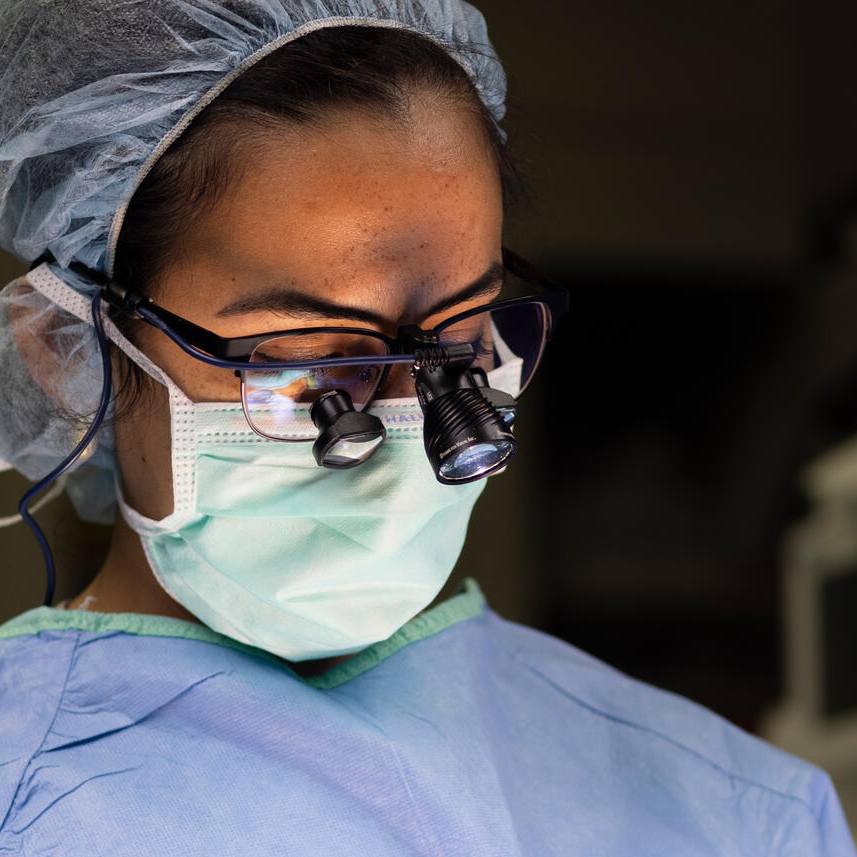-
Pivoting toward a new strategy for fighting disease
The Mayo Clinic Symposium on Regenerative Medicine & Surgery 2023 opened today with a look at how biotherapeutics is shaping the future of medicine.
"Our commitment to delivering new cures for unmet conditions is behind Mayo's pivot to biomanufacturing," says Julie Allickson, Ph.D., the Michael S. and Mary Sue Shannon Family Director of Mayo Clinic's Center for Regenerative Biotherapeutics. "At Mayo Clinic, the needs of the patient come first."
Dr. Allickson is also the Otto Bremer Trust Director, Biomanufacturing and Product Development, Center for Regenerative Biotherapeutics. She is an expert with 25 years of experience in regulatory affairs and clinical translation of cellular therapies.
Mayo Clinic has made significant strides in its new strategic direction of biomanufacturing early stage therapeutics. Over the three-day symposium, Dr. Allickson and other trailblazers in this emerging field will share important learnings in biomanufacturing and in accelerating promising cell and gene therapies.
"Mayo Clinic is investing in biotherapeutics to provide new options aimed at treating diseases that have not responded to standard, small molecule drugs," says Dr. Allickson. "Biotherapeutics derived from human sources show promise for treating conditions that, so far, have eluded medical science, particularly for rare and complex disorders."
Regenerative biotherapeutics is an emerging field in which biologics from human sources — cells, blood, enzymes, tissues, genes or genetically engineered cells — are used in medicines. The hope is that biologics will provide targeted healing with fewer side effects.
Chimeric antigen receptor therapy (CAR-T therapy) is an example of a biotherapeutic that is transforming care for some blood cancers. CAR-T therapy uses genetically engineered T cells to recognize and destroy cancer cells. It has shown therapeutic value in some B-cell leukemias and lymphomas and multiple myeloma.
Dr. Allickson shared how Mayo Clinic is building an advanced ecosystem of physicians, scientists, industry collaborators and advanced facilities to advance new biotherapeutics.
"Industry alliances are essential for moving promising discoveries beyond phase two clinical trials," says Dr. Allickson. "At Mayo Clinic, we are working side-by-side with industry collaborators to scale up and scale out manufacturing of validated therapies. It's a fairly new model for an academic center, and we're very excited about the new biotherapeutic options this could bring to patients."
Mayo Clinic scientifically validates which discoveries are ready to move toward process development, biomanufacturing and early clinical trials. Strategic focus is on potential treatments for chronic conditions such as diabetes, kidney disease or cancer.
"Our goal is to accelerate validated therapies that enhance quality of life for the patient," says Dr. Allickson. "For example, we are assessing CAR-T discoveries that can target solid tumors. If we determine we can manufacture products for early phase clinical trials, we will seek industry collaborators to commercialize them for the benefit of patients around the world."
Mayo Clinic is making significant investments in biomanufacturing facilities in Arizona, Florida and Minnesota. The strategy is built on four pillars of biomanufacturing early stage therapeutics:
- Process development – the bridge from the lab to clinical manufacturing.
- Quality control – ensuring regulatory standards for safety in patients are met.
- Quality assurance – monitoring and evaluation to ensure consistent quality.
- Advanced biomanufacturing – manufacturing processes that align with Food and Drug Administration standards for commercial therapies.
The symposium is an opportunity to train current and future physician-scientists how to apply regenerative biotherapeutics to their research and practice. Attendees will learn from Mayo Clinic innovators as well as nationally and internationally known experts. Topics include the latest in regenerative immunotherapies, oncology, cell and gene therapies, regulatory issues, cell-free therapies, tissue engineering, 3D bioprinting and organ bioengineering.
Keynote speakers will be:
- Shinya Yamanaka, M.D., Ph.D., the Nobel laureate who discovered how to reprogram human cells and who also is director of the Center for iPS Cell Research and Application, Kyoto University.
- Bruce Levine, Ph.D., immediate past president of the International Society for Cell & Gene Therapy. Dr. Levine also is founding director of the Clinical Cell and Vaccine Production Facility in the Department of Pathology and Laboratory Medicine and the Abramson Cancer Center, Perelman School of Medicine, University of Pennsylvania.
- Raghu Kalluri, M.D., Ph.D.,professor and chairman of the Department of Cancer Biology and the director of the Metastasis Research Center at MD Anderson Cancer Center.
- Harald Ott, M.D., associate professor of surgery at Harvard Medical School and a thoracic surgeon at Massachusetts General Hospital.
Follow news from the symposium on Twitter at #MCRegenMed23.
Any revenue Mayo Clinic realizes from licensing its discoveries are reinvested in Mayo's nonprofit research and education initiatives.
About Mayo Clinic
Mayo Clinic is a nonprofit organization committed to innovation in clinical practice, education and research, and providing compassion, expertise and answers to everyone who needs healing. Visit the Mayo Clinic News Network for additional Mayo Clinic news.









